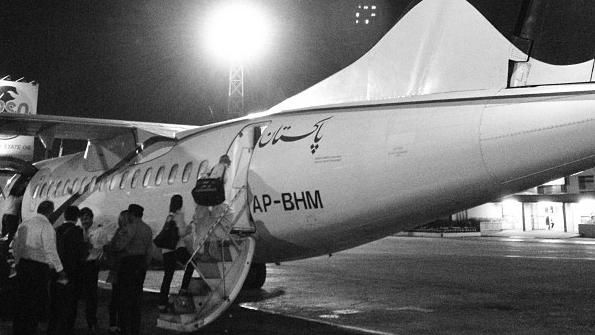A journalist returns to Pakistan more than 60 years after her family fled to India
My ride to Lahore!
I got goose bumps as I walked off the plane onto the tarmac at Islamabad airport.
After a string of long flights — from Boston to San Francisco to Honolulu to Tokyo to Bangkok, and finally to Pakistan — I became the first person in my entire extended family to return to my ancestral homeland, some 67 years after leaving.
I couldn’t believe that, after all these years, I was finally only a couple hours drive away from where my family on both my mom and dad’s side once lived.
In 1947, when India split into two countries in what is known as the Partition, my grandparents and their families left their hometowns, never to come back. Hindus fled to India, and Muslims to the newly formed Pakistan in a historic division that displaced more than ten million people. They left homes, friends and, in my paternal grandfather’s case, a factory he had started.
Decades later, my grandparents, who lived with us when I was growing up in California, told stories of far-flung towns in Pakistan’s northwest region I never thought I’d visit. My maternal grandfather talked of the cool evening breeze in his hometown of Nowshera, less than 100 miles from Islamabad. During my past week in Pakistan, I’ve met many people who lived in Nowshera and told me about the place, filling in the gaps in my family’s collective memories.
On my dad’s side, he and his older brothers often talked of Lahore, the city they were born in and where spent their childhood. They recalled memories of their home on a tree-lined street, but were too young to remember much more. Thursday, on my first day in Lahore, I went to my dad’s old neighborhood and saw for myself the leafy green area my father’s family once called home.
I’m here as a journalist, with the goal to open up people’s eyes about Pakistan. But, I’m starting with my own family. I hope my stories, 67 years later, will encourage my family to return and see their homeland again.
Sonia Narang's trip is part of the East-West Center's Pakistan-US Journalists Exchange.
I got goose bumps as I walked off the plane onto the tarmac at Islamabad airport.
After a string of long flights — from Boston to San Francisco to Honolulu to Tokyo to Bangkok, and finally to Pakistan — I became the first person in my entire extended family to return to my ancestral homeland, some 67 years after leaving.
I couldn’t believe that, after all these years, I was finally only a couple hours drive away from where my family on both my mom and dad’s side once lived.
In 1947, when India split into two countries in what is known as the Partition, my grandparents and their families left their hometowns, never to come back. Hindus fled to India, and Muslims to the newly formed Pakistan in a historic division that displaced more than ten million people. They left homes, friends and, in my paternal grandfather’s case, a factory he had started.
Decades later, my grandparents, who lived with us when I was growing up in California, told stories of far-flung towns in Pakistan’s northwest region I never thought I’d visit. My maternal grandfather talked of the cool evening breeze in his hometown of Nowshera, less than 100 miles from Islamabad. During my past week in Pakistan, I’ve met many people who lived in Nowshera and told me about the place, filling in the gaps in my family’s collective memories.
On my dad’s side, he and his older brothers often talked of Lahore, the city they were born in and where spent their childhood. They recalled memories of their home on a tree-lined street, but were too young to remember much more. Thursday, on my first day in Lahore, I went to my dad’s old neighborhood and saw for myself the leafy green area my father’s family once called home.
I’m here as a journalist, with the goal to open up people’s eyes about Pakistan. But, I’m starting with my own family. I hope my stories, 67 years later, will encourage my family to return and see their homeland again.
Sonia Narang's trip is part of the East-West Center's Pakistan-US Journalists Exchange.
